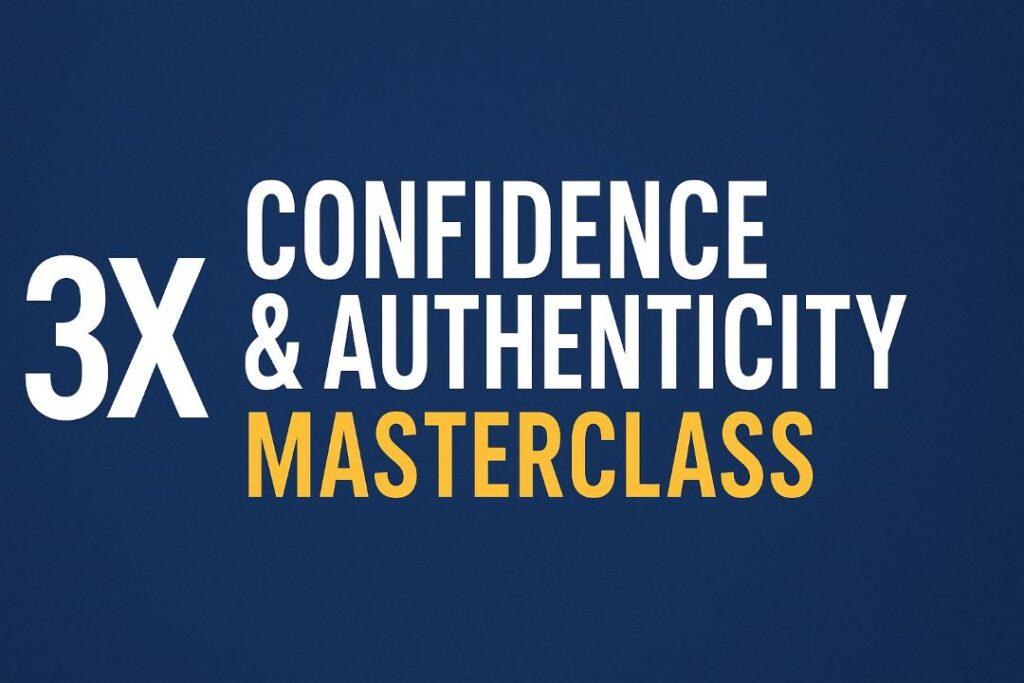Managing Social Anxiety With Mindset Techniques

Managing social anxiety with mindset techniques involves gradually increasing your confidence by using methods that will give you coping skills to help you talk to people with more ease.
Social anxiety is more than just shyness; it’s a persistent fear of social situations where you’re worried about being judged or embarrassed. Many people experience it, but if it persists, it can turn simple interactions into stressful challenges. But you don’t have to feel this way forever.
Learn how to understand social anxiety’s causes and to manage it with self-help techniques to regain your confidence and take control of your social life.
Table of Contents
Recognising Social Anxiety Symptoms
Social anxiety is not just about feeling nervous before big events or a social phobia. It can affect normal daily interactions like talking to a neighbour or attending work meetings. You may experience:
Emotional symptoms: constant fear of being judged or humiliated.
Physical symptoms: sweaty palms, racing heart, trembling hands, or stomach discomfort.
Behavioural symptoms: Avoiding social situations, skipping gatherings, or steering clear of everyday interactions.
Do you recognise any of these symptoms in social situations? Being aware of these symptoms is the first step to addressing them and finding effective ways to cope with social anxiety.
What Triggers Social Anxiety?
Fear of criticism, performance pressure, or coming into contact with strange people and environments can all cause social anxiety. Past experiences, like being ridiculed, may make you doubt yourself. Even comparing yourself to others on social media can heighten your anxiety.
Understanding these triggers helps you become more aware of when and why anxiety flares up, making it easier to manage.
What Causes Social Anxiety?
Social anxiety can be rooted in both psychological and biological factors. Negative thought patterns can make you overly critical of your social performance. Also, genetic predispositions or imbalances in brain chemicals like serotonin can also contribute.
Psychologically, past experiences such as bullying, rejection, or overprotective parenting can affect your perception of social interactions, making you more anxious. Cognitive distortions, such as mental bias, can exacerbate these fears, leading to a cycle of anxiety and avoidance that is difficult to break.
Biologically, research suggests that the amygdala, a brain region involved in processing fear and emotions, may be hyperactive if you experience social anxiety. This heightened response can trigger the fight-or-flight reaction even in relatively benign social situations. Also, neurotransmitters such as dopamine and norepinephrine may play a role in mood regulation and anxiety responses.
How Social Anxiety Impacts Your Daily Life
Social anxiety can negatively affect both your personal and professional life. It often leads to avoidance behaviours, such as skipping social events, declining job opportunities, or hesitating to interact with colleagues or peers. Over time, this can lead to isolation, low self-esteem, and missed opportunities.
Being aware of these struggles can help you take proactive steps to overcome the anxiety and lead a more connected life.
Managing Social Anxiety With Mindset Techniques
Understanding your feelings is crucial. Try keeping a journal to track your emotions and reflect on your experiences. This practice will help you identify patterns in your anxiety, whether it’s related to certain situations, people, or environments.
Mindfulness can also help. Simply pausing to assess your emotions during an anxious moment can reduce the intensity of those feelings.
You can manage social anxiety with mindset techniques such as:
Deep Breathing Exercises
Calm your nervous system by focusing on slow, deep breaths. Example: You’re about to walk into a party where you don’t know anyone, and you feel your heart racing. Before entering, take a moment outside to practice deep breathing. Inhale through your nose for 4 seconds, hold for 4 seconds, then exhale slowly through your mouth for another 4 seconds. Repeat this a few times until you feel calmer and more in control.
Gradual Exposure
Start with small, less intimidating social interactions and work your way up. Example: If making small talk with strangers makes you anxious, start with smaller goals. One day, greet the cashier at the grocery store with a simple “hello.” As you get more comfortable, try adding a friendly comment, like, “How’s your day going?” Eventually, you can work your way up to having longer conversations with new people in social settings.
Why is gradual exposure also a mindset technique? By consistently practicing gradual exposure, you can gradually shift your mindset from avoiding social situations to enjoying them, allowing yourself to handle increasingly difficult social situations with ease.
Positive Visualisation
Picture yourself confidently navigating social situations. Example: You have an upcoming work meeting where you need to present in front of your team. The night before, close your eyes and imagine yourself standing confidently, speaking clearly, and making eye contact with your colleagues. Visualise the meeting going smoothly, and feel the relief and satisfaction once it’s over. Doing this regularly will help build your confidence.
Challenging Negative Thoughts
Ask yourself if your anxious thoughts are based on facts or assumptions. Example: Before a social event, you might think, “Everyone will think I’m awkward and weird.” Challenge this by asking, “Is this thought based on fact, or am I making assumptions?” You can then reframe it with a more balanced thought like, “Most people are too focused on themselves to judge me harshly, and even if someone does, it’s not the end of the world.
Mindfulness Practices
Stay grounded in the present to reduce anxiety. During a social gathering, you feel yourself getting anxious. Instead of letting your mind race with anxious thoughts, you take a deep breath and focus on the present moment. Listen to the sounds in the room, touch the wall and savour the taste of your drink. This mindfulness exercise helps shift your attention away from anxiety and back to the current experience.
Self-Compassion
Self-compassion involves treating yourself with the same kindness and understanding that you would offer to a close friend who is struggling, instead of being overly self-critical.
Let’s say you fumble your words during a conversation and immediately think, “I always mess up! Everyone must think I’m so awkward.” Instead of beating yourself up, you can practice self-compassion by telling yourself, “It’s okay to make mistakes. No one is perfect, and it’s normal to have moments like this. I’m doing my best, and that’s enough.”
By being kinder to yourself, you reduce the intensity of your anxiety and create space for growth and resilience. Self-compassion helps you build a more positive relationship with yourself, making it easier to face social situations without the fear of harsh self-judgement. This shift in attitude helps with a supportive inner dialogue to help reduce your social anxiety over time.
Reflection
Reflection is equally important. After social interactions, take a moment to consider what went well. Did you make a new connection? Did you feel more comfortable than expected? When you focus on the positive aspects, you’re teaching your brain to recognise progress, no matter how small. Over time, this practice shifts your focus from what didn’t go perfectly to the successes you’re achieving.
Developing a Confident Mindset
Confidence isn’t something you’re born with; it’s a skill you can develop over time, just like learning to ride a bike or mastering a new language. Start by setting small, achievable social goals. Practice positive affirmations like “I am capable” or “I deserve to be heard.” Visualise yourself succeeding in social settings and reflect on what goes well in interactions.
With consistent practice, you’ll build a mindset that thrives in social situations.
Confidence requires maintenance. Focus on a self-care routine that includes regular exercise, mindfulness, and a healthy lifestyle. Set realistic goals and celebrate small wins while remembering to be kind to yourself on harder days.
Engaging in social skills training or therapy can also provide long-term support and help you stay on track.
As you work towards these goals, incorporate positive affirmations into your daily routine. These are powerful statements like “I am capable” or “I deserve to be heard” that remind you of your inherent worth. Repeating these affirmations daily—whether in front of a mirror or before a social event—reinforces a positive self-image and helps rewire your brain to focus on your strengths rather than your insecurities.
Visualising success is another critical tool in developing confidence. Picture yourself entering social settings with ease, speaking clearly, and feeling comfortable. Imagine how it feels to succeed—people responding positively, you handling the situation with poise. Visualisation helps prepare your mind for real-life scenarios, reducing anxiety and building familiarity with the situations that usually cause discomfort.
With consistent practice, you’ll find that confidence becomes less of an elusive trait and more of a reliable tool. You’ll start to develop a mindset that doesn’t just survive social situations but thrives in them, enabling you to feel at ease in conversations, meetings, or any social setting.
However, confidence requires maintenance. It’s not a one-time achievement but an ongoing process. Regular self-care plays an important role in sustaining your confidence. Incorporating habits like regular exercise, mindfulness practices, and a healthy lifestyle can significantly improve your mental and physical well-being, giving you the energy and resilience needed to face social challenges. Exercise, in particular, releases endorphins that boost mood and reduce stress, making it easier to feel confident.
In addition to self-care, setting realistic goals for yourself is crucial. You’re not aiming to be perfect; you’re aiming to improve. Each step forward, no matter how small, is progress worth celebrating. Maybe today you only managed to greet a colleague, but that’s still a victory. Tomorrow, you might engage in a longer conversation. These small wins build over time, reinforcing your confidence.
It’s also important to be kind to yourself on tougher days. Sometimes, social anxiety may overwhelm you, and that’s perfectly acceptable. Confidence isn’t about never feeling anxious; it’s about how you respond to those moments. Acknowledge the difficult days, learn from them, and remind yourself that setbacks are part of growth. Each challenge offers an opportunity to learn and improve, so be patient and forgiving with yourself.
When you pay attention to self-care, goal-setting, and reflection in your routine, you’ll develop lasting confidence that empowers you to handle yourself in social situations with ease and authenticity. Once developed, confidence becomes a lifelong asset that gives opportunities for richer experiences and deeper connections.
Overcoming social anxiety is a gradual process, but every small step you take brings you closer to a more confident, fulfilling life. Managing social anxiety with mindset techniques, seeking support when needed, and celebrating your progress along the way will help you improve your social skills.
You are empowered to face your social anxiety and transform how you experience social interactions. With time and perseverance, you can build the confidence to thrive in any social situation.
This eBook, with seven chapters, explores the important yet often misunderstood concept of solitude and its role in your life. However, this isn't just a book about how to be alone but a tool for self-discovery, self-acceptance and learning to appreciate your own company.
The author challenges the idea that being alone equates to loneliness, instead presenting it as an enriching experience. The chapters guide you to understand what it truly means to be alone, helping you to change your inner thoughts and become your own best friend.
If you who want to better understand and appreciate the power of their own company, you will enjoy this book for its transformative insights. A must read if you want to start a journey of self-discovery and personal growth.
Continue Reading
- How to Deal with Unexpected Situations: When Life Throws You a Curveball
- How Mindset Quotes Can Change the Way You Think
- Stop Absorbing Others’ Feelings And Acting As An Emotional Sponge
- Use The Third Chair Technique To Gain Clarity
- Forgive Yourself: A Guide to Healing and Inner Peace


Leave a Comment